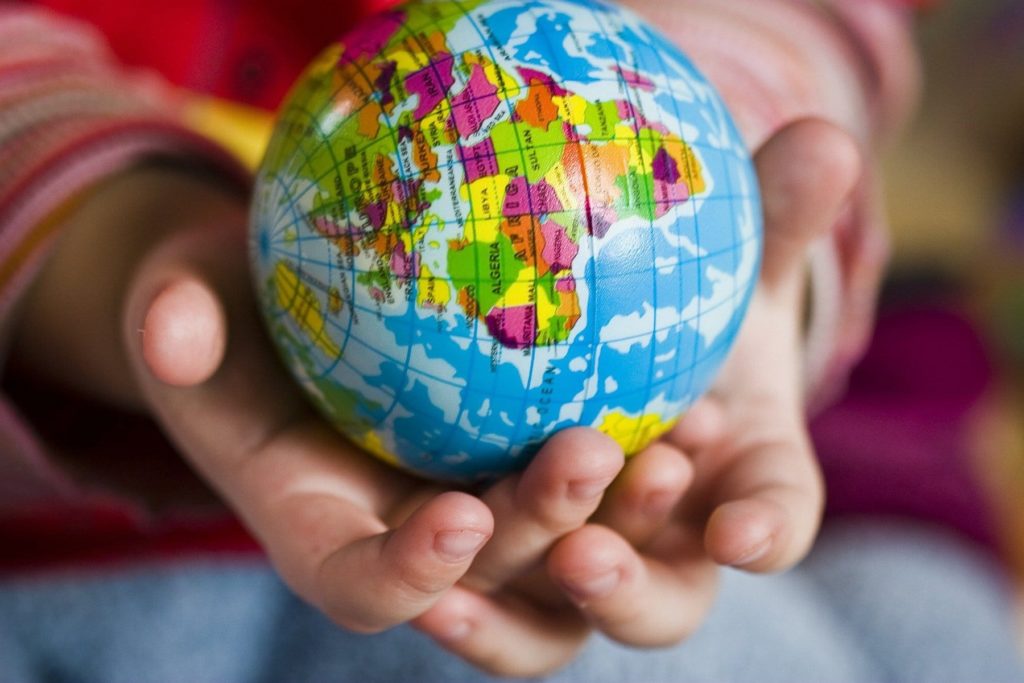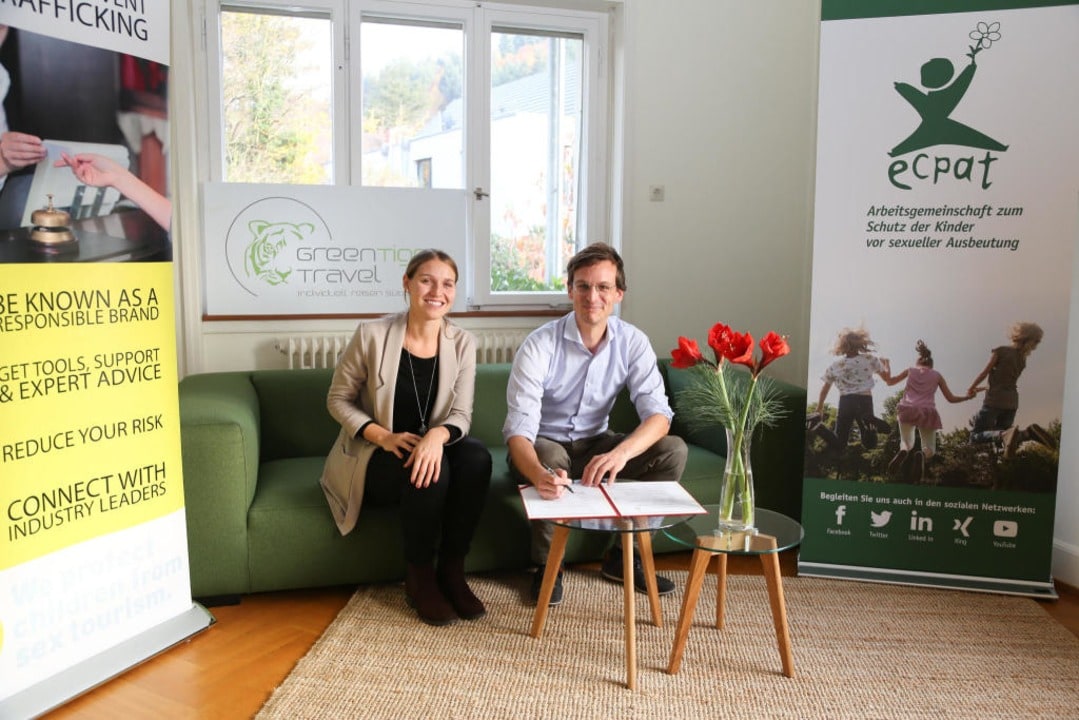Tourism is a rapidly growing industry; global travel has increased sharply since the mid-1980s. Many different actors are involved in tourism, from travelers to travel agencies and tour operators to local people. Some of our target countries are in ecologically and socially fragile regions. Children from these regions in particular are exposed to an increased risk of being exploited as workers or sexually abused. With this article we would like to offer travelers some help on what to do in the event of a suspected case.

What is it about?
Holidays are the best time of the year for travelers. We associate many great memories of adventures, experiences and a great time with friends or family with holidays. But the needs of the local people must not be neglected. Rather, anyone who travels with open eyes and ears can protect children from exploitation by simply providing assistance.
"ECPAT defines commercial sexual exploitation of minors as sexual violence against children and adolescents, which includes payment, gifts, favors or services to the child or other persons. Mostly compulsions and hardships drive the children into situations in which they are exposed to sexual violence, for example in prostitution."
ECPAT
Only a fraction of the criminal business with children is exposed and often happens behind closed doors. The figures are therefore only estimates and serve as a guide.
According to UNICEF (www.unicef.org) the following figures can be assumed:
- 1.2 million children are sold like goods every year
- 1.8 million children are forced into prostitution and pornography
- 150 million girls and 73 million boys are victims of sexual violence every year
- As early as 2003, an estimated 3 million child pornographic images were available on the Internet
- In South Africa alone, around 30,000 children are prostituting themselves, half of whom are younger than 14
- $ 12 billion is generated annually in child prostitution and pornography
According to Article 1 of the UN Convention on the Rights of the Child, everyone who has not yet reached the age of 18 is a child. Offenders in Germany face imprisonment of up to ten years, in the case of death, up to life. Thanks to the extraterritoriality, crimes can also be prosecuted and convicted in Germany if they were committed abroad.
Causes and Background
Children who grow up in homes and come from ailing families or extreme poverty are particularly in need of protection. There are a few factors that contribute significantly to a child’s vulnerability:
- Poverty and extreme social contrasts
- Violence and Sexual Abuse in the Family
- Discrimination against women and girls
- Wars and Armed Conflict
- The spread of AIDS
- Lack of registration of births
Organizations for child protection in tourism
Since the beginning of the 20th century, children’s rights have become a global issue. As a result of the aftermath of World War I, the first children’s rights organizations were founded and the Geneva Declaration was adopted. Since then, many people around the world have worked to protect the well-being and growing up of all children. On November 20, 1989, the UN passed the International Convention on the Rights of the Child. This day manifests the rights of children and has been International Children’s Rights Day ever since.
As a selection of projects that are involved in child protection, we would like to name the following organizations:
ECPAT (End Child Prostitution, Child Pornography and Trafficking of Children for Sexual Purposes) is an international network of 90 groups in 82 different countries based in Bangkok. As a children’s rights organization, ECPAT campaigns against the exploitation of children in prostitution, pornography and child trafficking. For Germany, the network is represented by ECPAT Deutschland e.V. The aim is to implement children’s rights through various campaigns and projects.
The Code is a code of conduct to protect children from sexual exploitation while traveling and in tourism
The Code aims to create awareness, tools and support in the tourism industry to combat the sexual exploitation of children in the context of travel and tourism.
As part of this mission, The Code applies the following six criteria that tourism professionals must adhere to once they join The Code:
- Establishing a policy and procedures against the sexual exploitation of children.
- Train staff on children’s rights, preventing sexual exploitation and reporting suspicious cases.
- Inclusion of a clause in contracts throughout the value chain that establishes a common denial and zero tolerance for the sexual exploitation of children.
- Educating travelers about children’s rights, preventing child sexual exploitation and reporting suspicious cases.
- Support, cooperation and involvement of stakeholders in the prevention of sexual exploitation of children.
- Annual reporting of the implementation of activities related to The Code.
UNICEF is the United Nations Children’s Fund. UNICEF’s mission is to realize children’s rights for every child, regardless of their skin color, religion or origin. The UN Convention on the Rights of the Child is the guideline for worldwide work.
From quick emergency aid to long-term reconstruction, UNICEF helps girls and boys all over the world grow up healthy and safe and can develop their skills to the full.
Save the Children is the world’s largest independent children’s rights organization. The organization was founded in 1919, shortly after the First World War, by teacher Eglantyne Jebb in Great Britain. Children in Germany were the first to be helped by Save the Children. Save the Children works in more than 120 countries, has advisory status with the Economic and Social Council (ECOSOC) of the United Nations and supports the International Campaign for the Ban on Landmines, which won the 1997 Nobel Peace Prize.
Behavior in suspected cases
Have you observed an unusual situation or are you not sure whether there has been a criminal offense? Write down important information (description of the person, number plate of the car, street name, hotel room number, etc.). The local police, the German embassy and many hotels will help you deal with the situation. Reports on suspected cases can be sent to ECPAT via the dontlookaway platform. The report can be submitted completely anonymously if no personal data is to be given. Every report counts and can help prevent child exploitation. If you are unsure, the Green Tiger staff will be happy to assist you at any time.

By loading the video, you agree to YouTube's privacy policy.
Learn more
Commitment from Green Tiger Travel
Tourism, especially in developing and emerging countries, has a major impact on the development of a country. The management as well as all employees of Green Tiger are aware of their responsibility and make all trips as sustainable as possible in order to allow the positive effects of tourism to outweigh.
Since 2019 we have been a signatory of the child protection code “The Code”. We have therefore made a conscious commitment to implement the criteria laid down in it for the protection of children from sexual exploitation. As a supplement to the travel documents, we will send each of our customers an information flyer from ECPAT. Furthermore, we are available as a contact person for our customers if a suspected case is observed on site.
In doing so, we rely on the support of all employees and customers. Measures for suitable child protection in our travel countries are continuously being developed. Both employees in the travel industry and travelers themselves can play an active role in child protection in tourism.



